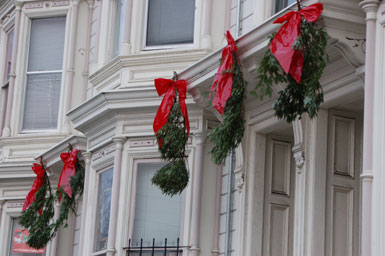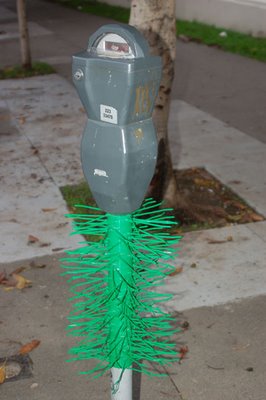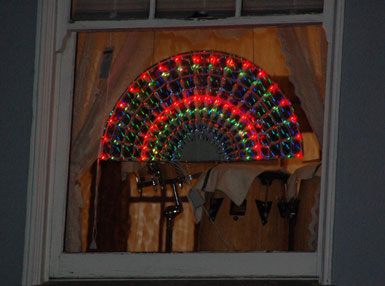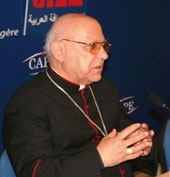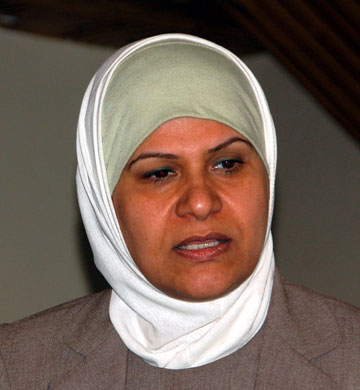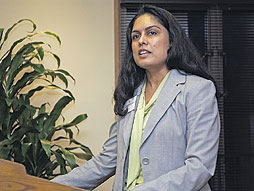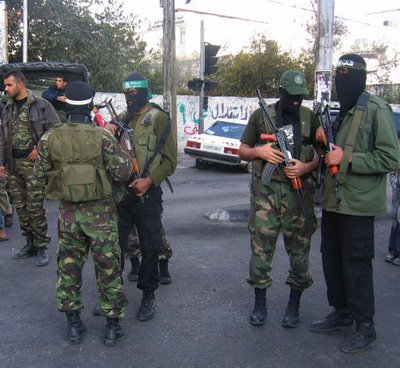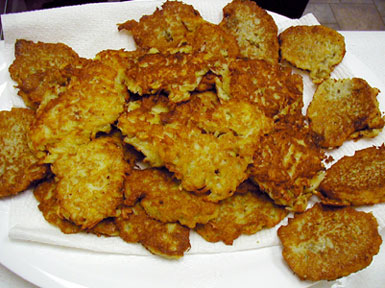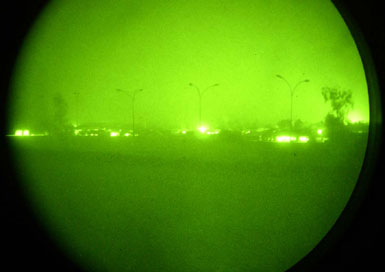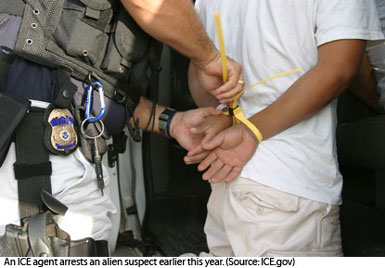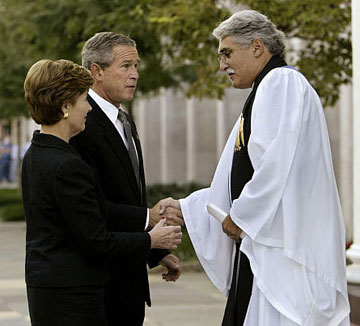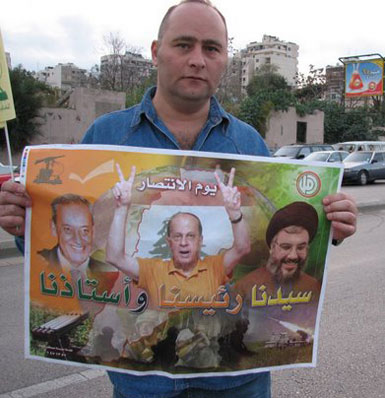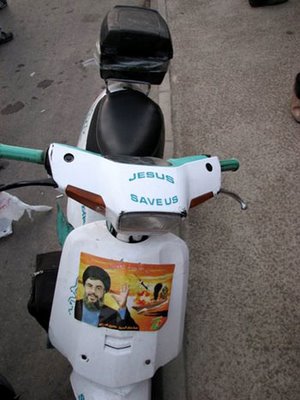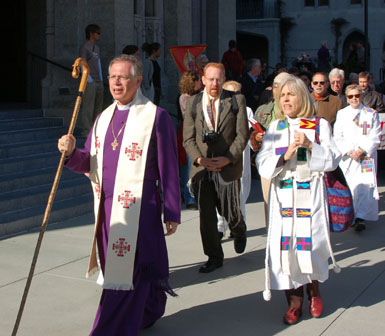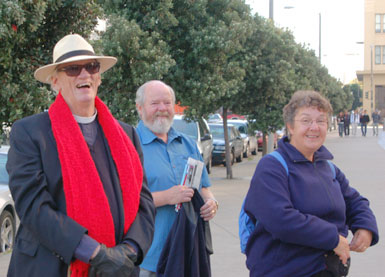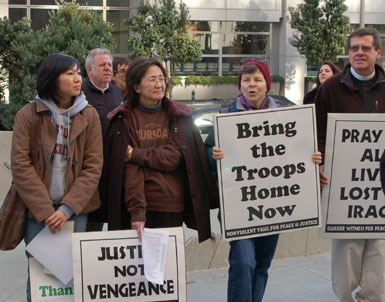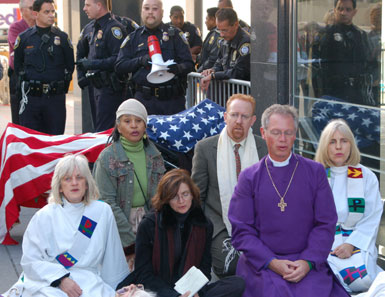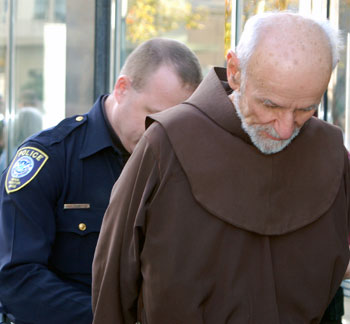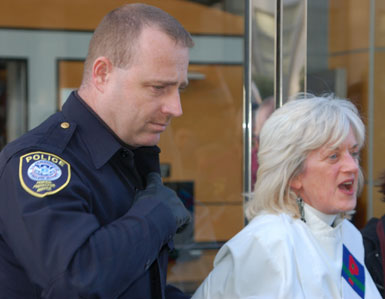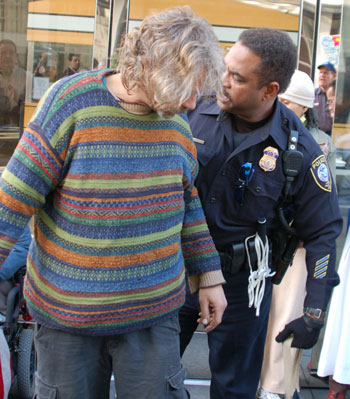
A hearty group of some 50-75 peace activists braved the cold tonight in San Francisco bear witness to the 3000th U.S. troop fatality in Iraq. (As I write this the toll reads "only" 2998, but no one doubts there will be more tomorrow...)

They chose the front of the Veterans Building at the Civic Center's War Memorial Complex for their vigil; sadly, it was within this building that countries signed the original United Nations Charter with the aim of preserving world peace.

It was a sad night for simple messages...
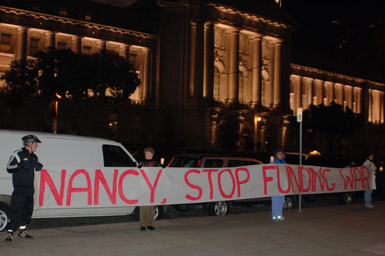
including one directed to our local Congresswoman, the new Speaker.
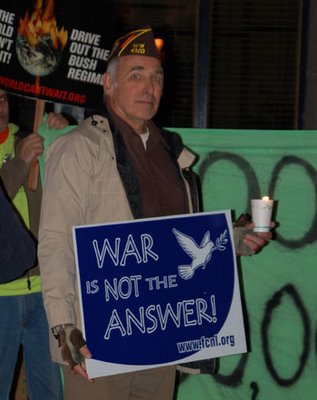


Nearby in Civic Center plaza, Veterans for Peace held their own commemoration.
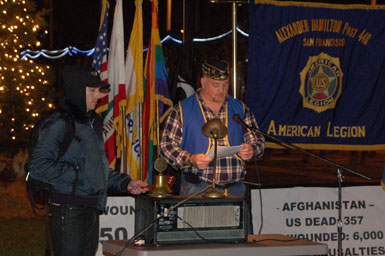
A series of readers intoned the names of the U.S. dead.


The vets had hung 3000 neckties from the closely pruned trees in the plaza to represent the fallen.

A man who apparently carries his possessions in a shopping cart sat quietly listening to the names, perhaps praying.
Meanwhile, nearby, patrons flocked to the San Francisco Ballet's performance of the Nutcracker.
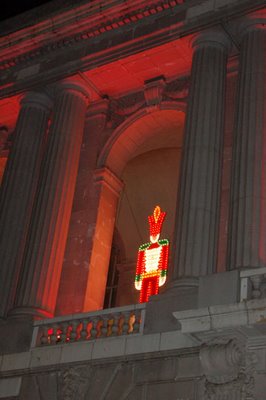
UPDATE: sfmike at Civic Center has up great pictures of the ties and the vets, taken in daylight when you can really see them.
No it doesn't. The deaths of both so many Iraqis and those 3000 are crimes whose authors belong on trial.Nearly four years ago, I cringed every time I heard about the death of an American soldier. They were occupiers, but they were humans also and the knowledge that they were being killed in my country gave me sleepless nights. Never mind they crossed oceans to attack the country, I actually felt for them.
Had I not chronicled those feelings of agitation in this very blog, I wouldn't believe them now. Today, they simply represent numbers. 3000 Americans dead over nearly four years? Really? That's the number of dead Iraqis in less than a month. The Americans had families? Too bad. So do we. So do the corpses in the streets and the ones waiting for identification in the morgue.
Is the American soldier that died today in Anbar more important than a cousin I have who was shot last month on the night of his engagement to a woman he's wanted to marry for the last six years? I don't think so.
Just because Americans die in smaller numbers, it doesn't make them more significant, does it?





